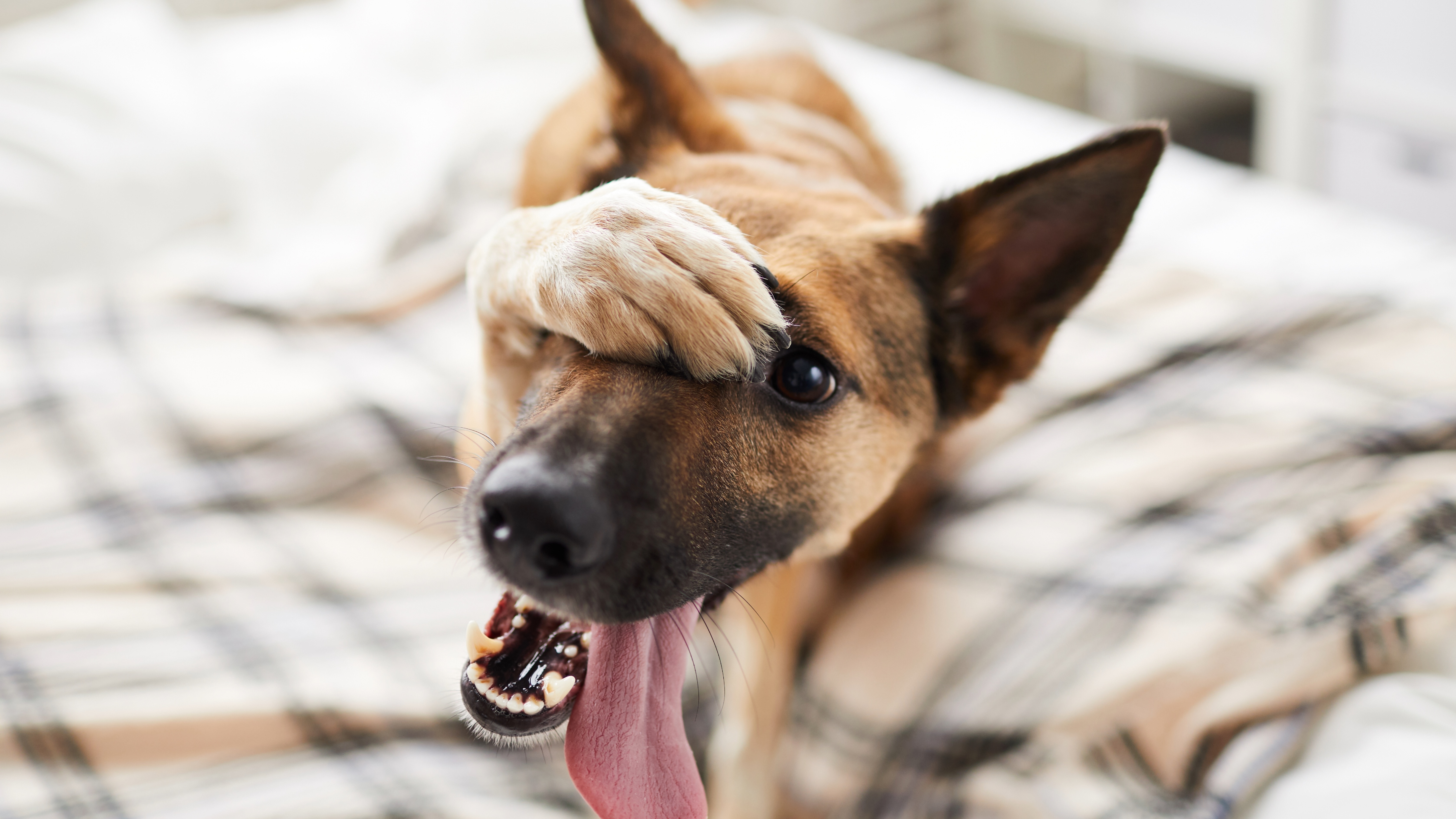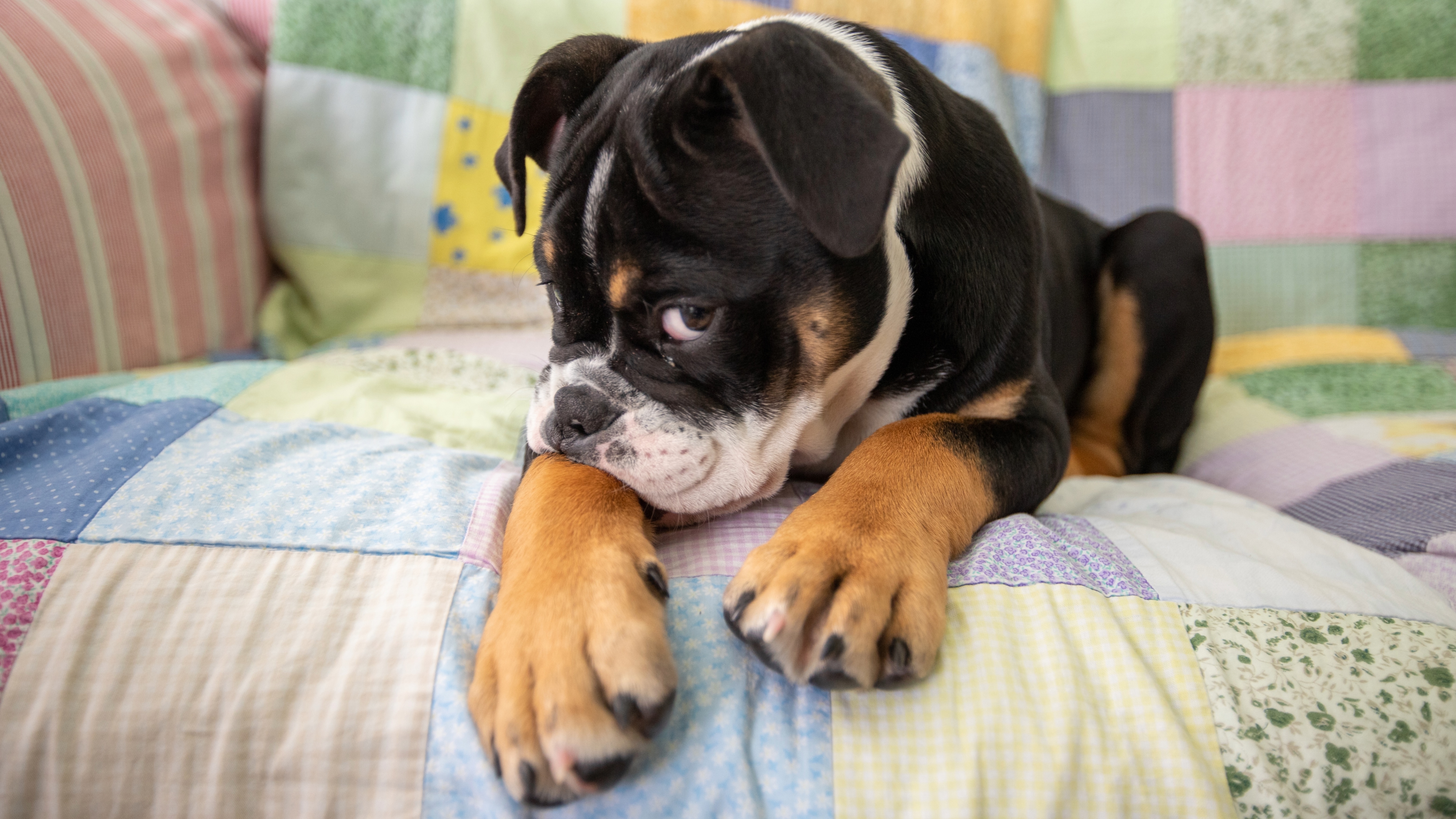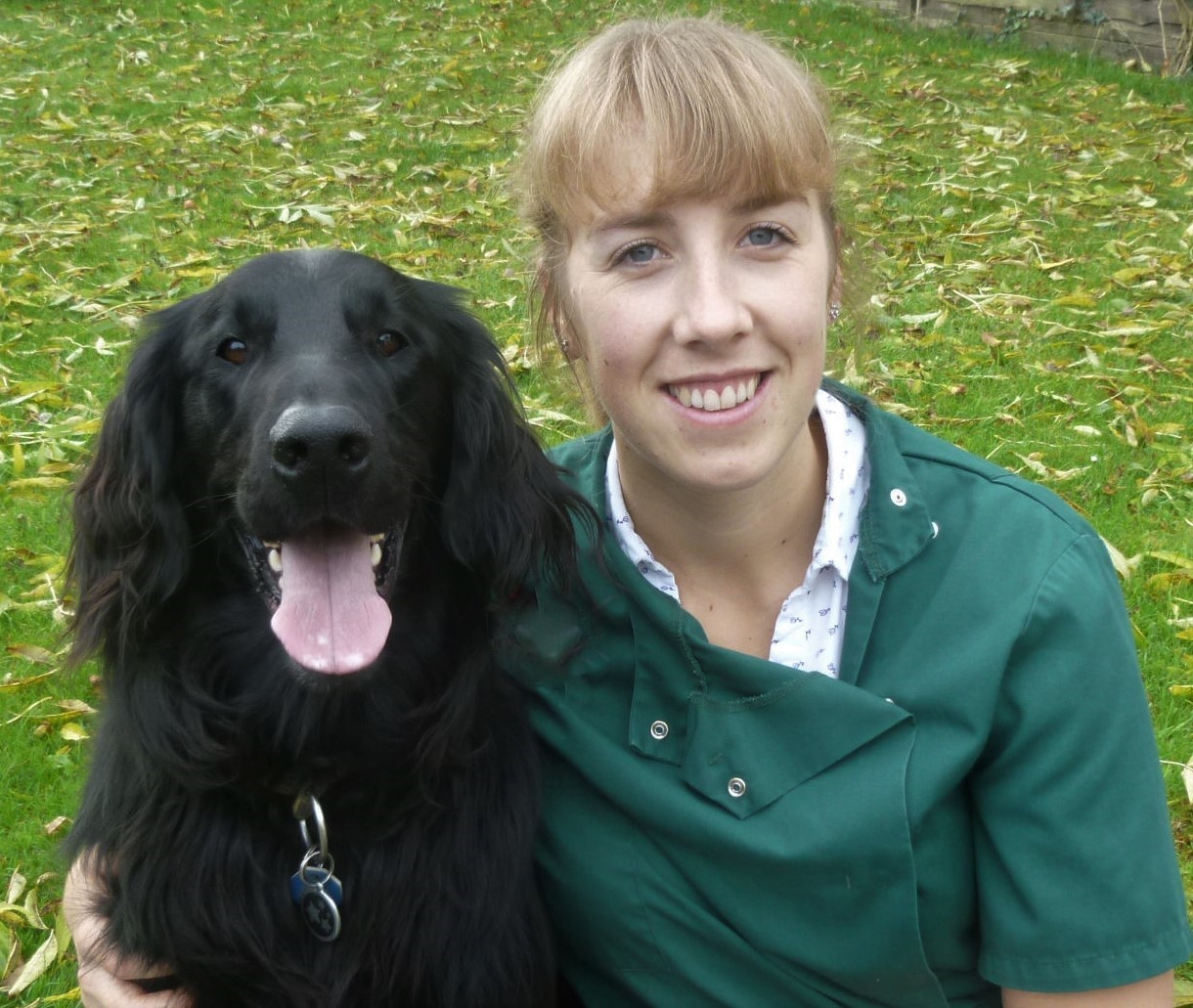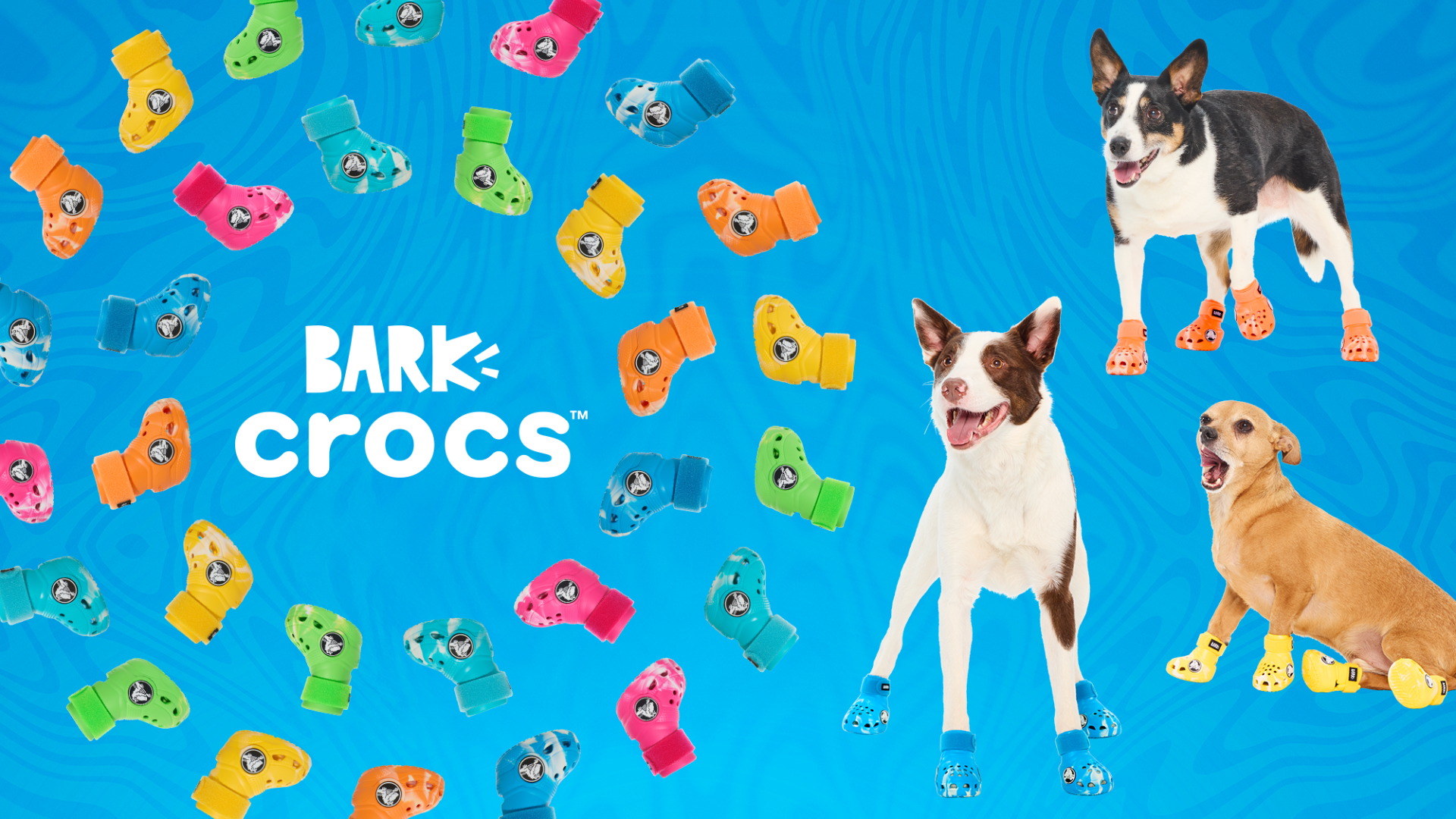Why do dog's farts smell so bad?
Why do dog's farts smell so bad? We spoke to a vet to find out!

Why do dog's farts smell so bad? It's a question you may well be pondering if you regularly catch whiff of an unpleasant odor and glance over at your pup to find them sheepishly attempting to avoid making eye contact!
While it can be easy to blame the best dog food for creating all that stinky smelling gas, there are actually lots of reasons why your dog's farts may make you want to run for cover — and you'll be relieved to learn that most of them are nothing to worry about.
More often than not, stinky farts are just one of those funny things dogs do, but sometimes allergies, intestinal parasites or your pup wolfing their food down a little too quickly may be to blame.
To help us get to the bottom of why our dogs produce such foul-smelling gas, we turned to expert vet Dr. Rebecca MacMillan who revealed exactly what's going on in the stomachs of our canine companions, why it happens and whether there's anything we dog owners can do to stop it.
Why do dog's farts smell so bad?
There are some things you only know if you're a dog owner, and stinky farts are something you've no doubt experienced at one time or another. If you're wondering what on earth causes your dog's farts to smell so bad they have the power to clear a room, Dr. MacMillan has the answer.
"Dogs produce gas as part of normal digestion, just as we do," she explains. "This is down to the bacteria in their guts. These bacteria are essential for breaking down food into nutrients that the body can use, but in doing so certain by-products are released, including gas.
Most of this is odorless in healthy animals, however there are some times when the gas actually smells pretty bad. Hydrogen sulfide is responsible for this characteristic odor, and an excess production of this can occur for several reasons."
Get the best advice, tips and top tech for your beloved Pets
What causes flatulence in dogs?

If you're anything like us, you're always looking for ways to be a responsible dog owner. From feeding your pup a nutritious diet to making sure they get plenty of play time with the best dog toys, your role as a pet parent is likely one that you take seriously.
But what if you do all the things you're meant to do to ensure your pup stays happy and healthy and yet they still regularly smell like they've just consumed a big bowl of steaming brussel sprouts? Well, according to Dr. MacMillan, both the food your dog's consuming and their gut health could be to blame.
"If your dog's food is hard for them to digest it will pass through their stomach and small intestines. It enters the large intestine where bacteria will need to break it down instead, creating fermentation gases in the process. This is why certain foods or changes in diet can lead to more gas", she explains.
"Dogs with poor gut health due to underlying illness are also more likely to produce excessive amounts of smelly wind than other dogs, due to impairments in the way they can process their food. These animals will often benefit from a change in diet, in addition to any other medication your vet prescribes."
Below, Dr. MacMillan walks us through the five main causes of flatulence in dogs — and don't worry, we'll get to some of the things you can do to prevent it in just a minute!
1. Diet
"Diet can have a big impact on flatulence in dogs, with certain items or ingredients being more likely to cause gas because they are harder to digest," explains Dr. MacMillan who goes on to say that bread, dairy products, peas, lentils, and beans (including soya) can be particularly problematic.
Foods with sulphur-containing amino acids can also cause problems — so while there are lots of human foods dogs can eat, things like eggs, broccoli, cauliflower and sprouts all have the potential to lead to wind that is a lot more smelly than usual.
"Straying suddenly from your pet's normal food can also upset things, so you might find your dog is more flatulent than normal after eating table scraps," adds MacMillan.
2. Swallowed air
"Gulping down air (aerophagia) can lead to more gas entering the digestive tract, which needs to come out somewhere!," explains Dr. MacMillan. "This usually occurs if your dog is eating their food too quickly."
3. Digestive disorders
"Digestive disorders such as inflammatory bowel conditions or pancreatitis can contribute to issues like extra flatulence, as well as vomiting or diarrhea," MacMillan says.
If you're worried about IBD in dogs, speak with your vet who will be able to give your pup a thorough check up and run the appropriate tests.
4. Food allergies
There are a several common allergies in dogs and a food allergy is one that can create smelly wind.
"If your dog has a sensitivity or allergy, then this could lead to tummy troubles including extra wind," Dr. MacMillan confirms. "Your vet will discuss with you how to do a proper dietary trial and they will be able to recommend hypoallergenic diets if an allergy is suspected."
5. Intestinal parasites
"Internal parasites such as roundworm, tapeworm, or giardia can cause tummy troubles, including flatulence," says Dr. MacMillan. "Routine parasite control can help keep these problems at bay."
How to stop smelly dog farts

Whether they're silent but deadly or rip-roaringly loud and smelly, stinky dog farts are never fun to be around. And while you likely love your canine companion to bits, you'd probably be quite happy if their presence in a room wasn't quite so potent.
The good news is there are lots of things you can try to prevent (or at least lessen) those pungent balls of gas your pup is producing. And Dr. MacMillan has shared five of her favorites...
1. Active lifestyle
"Plenty of exercise and play will help to keep their guts moving. This promotes normal bowel function which can lessen the risk of flatulence," explains Dr. MacMillan.
While a game or two with your dog's favorite toy is certainly one way to keep your pup active, here's 12 tips to help keep dog walks fun if you're looking for ways to add some variety into those daily strolls.
2. Smaller meals
Whether it's the best dry dog food or the best wet dog food, Dr. MacMillan suggests feeding your pup smaller meals to help them digest their food more easily.
"Giving multiple small meals throughout the day rather than one large one tends to be gentler on stomachs," she says.
3. Limit hard to digest foods
"Try and cut (or at least limit) hard-to-digest foods from your pet's diet. Fibrous foods like beans and other vegetables can create gas, as can dairy products in lactose-intolerant animals. Offer a highly digestible and low residue diet instead, based on ingredients like chicken and rice," Dr. MacMillan advises.
4. Encourage slow eating
If your pup has a tendency to wolf their food down, investing in one of the best dog puzzle toys can be a great way to get them to slow their pace at mealtimes.
There are lots of reasons to use a dog feeding puzzle or a slow feeder bowl, but encouraging slow eating (and reducing stinky gas!) is definitely at the top of the list.
5. Try probiotics
Prebiotics and probiotics for dogs — do they really need them? Well, according to Dr. MacMillan probiotics can be helpful if your dog produces smelly farts on a regular basis.
"Probiotics can be helpful for unsettled stomachs or animals with certain underlying health conditions," she explains. "Encouraging higher levels of good gut bacteria can lead to a healthier digestive system, meaning less unwanted gas."
When to take your dog to the vet
If your home is filled with the smell of stinky dog farts on a daily basis and your friends and family no longer want to call round for a visit, you may be wondering if it's time to get your fur friend checked over. Here's what Dr. MacMillan advises:
"While the occasional bit of smelly wind is nothing to worry about, you should take your dog to the vet if it is becoming excessive. You should also seek advice if your pet is showing any other symptoms of tummy trouble, including vomiting, diarrhea, appetite loss, or weight changes.
If you have any concerns about your pet's health, then it is always best to get them checked over. Your vet will also be able to answer any questions on diet or probiotics that you might have."
Have a ton of other canine-related questions you're looking to have answered? Why is my dog play biting me and why does my dog lick the bed shed some light on more weird and wonderful doggy behaviors!

Rebecca is a vet surgeon who graduated from the Royal Veterinary College in 2009. She has a wealth of experience in first opinion small animal practice, having done a mixture of day-to-day routine work, on-call emergency duties and managerial roles over the years. She enjoys medicine in particular and she is proud to have recently achieved a BSAVA postgraduate certificate in small animal medicine (with commendation). She writes on various feline and canine topics, including behavior, nutrition, and health. Outside of work and writing she enjoys walking her own dog, spending time with her young family and baking!

Kathryn is a freelance writer who has been a member of the PetsRadar family since it launched in 2020. Highly experienced in her field, she's driven by a desire to provide pet parents with accurate, timely, and informative content that enables them to provide their fur friends with everything they need to thrive.
Kathryn works closely with vets and trainers to ensure all articles offer the most up-to-date information across a range of pet-related fields, from insights into health and behavior issues to tips on products and training.
When she’s not busy crafting the perfect sentence for her features, buying guides and news pieces, she can be found hanging out with her family (which includes one super sassy cat and a kitten), drinking copious amounts of Jasmine tea and reading all the books.
She has written for a range of publications, including Fit&Well, Top Ten Reviews, LiveScience, Goodto, and Product Hunt.
